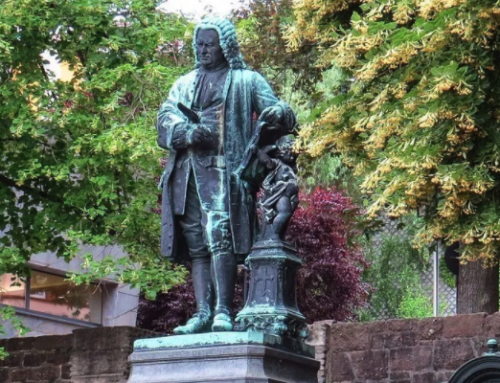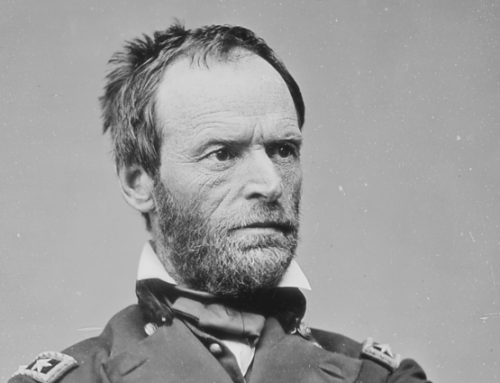Education by poetry is education by metaphor.—Robert Frost
The older I get the more I am convinced that a young teacher can learn almost everything he needs to know about teaching by reading Robert Frost.
He once said that “the three strands of my life” were “writing, teaching, and farming.” He failed at the third, but if you listen to the testimony of the boys and men he taught he was almost as good a teacher as he was a poet. I’ve been honored twice to teach about Frost with Prof. Dan Sundahl, himself a poet. We did what once was called “team-teaching,” a failed thing most of the time. In this case we had a plan that could not fail: We chose a writer who was both incredibly popular and who worked most of his life against the cultural grain, playing his poetry and prose off against the muddle of his times. In our first attempt at this daring thing we brought in Peter Stanlis, a friend of Frost since his college days and the author, recently, of an astonishingly good book, Robert Frost: The Poet as Philosopher. Much of what I know about Frost as a teacher I learned from Dr. Stanlis, and want to acknowledge here my gratitude to him as well as to my friend Dr. Sundahl.
In fact, to understand Frost as teacher, go to chapter 10 of Stanlis’s book, “Frost’s Philosophy of Education: The Poet as Teacher.” What follows here are merely notes about what one teacher has learned from Frost.
I heard him talk once, in the fall of 1958, in Johnson Chapel on the campus of Amherst College. He spoke some poems, told us not to talk them to death, delighted young men with dancing eyes and gravelly dark voice, and told an assistant professor who asked him a pretentious question to grow up. Oh, what I would have given to climb the downspout at the Lord Jeffrey Inn and intrude on his room later that night, as upperclassmen told me some brave souls had done in the past, rewarded with hours of stories and challenges to their manhood! Frost believed that students had to deal with “taste and judgment,” Americans being more adept at judgment than taste, and he believed that students had an obligation to “make a claim” on him outside of formal class time. “I favor the student,” he insisted, “who will convert my claim on him into his claim on me.”
He said that “there are and always have been three ways of teaching, namely, by formal contact in the classroom, by informal contact, socially as it were, and by virtually no contact at all. And I am putting the last first in importance–the teaching by no contact at all.” He also insisted that the teacher who influenced him most of all (William James at Harvard) he never took a class from, and the book that had great impact on him (Piers Plowman) he never read—he was afraid that if he read it the inspiration it had given him would prove illusory.
Was he playing with us? Taken literally this could even be a little perverse. But Frost took his teaching seriously—much more so than most of the professors I have known. For example, he wrote, “An examination often turns into an examination of the teacher’s ability to ask questions clearly.” There has never been a better expression of one of the important aims of teaching. Once he told his students, “Do something appropriate to this course that will please and interest me.” It may well have turned at least one student’s life around for the better. Maybe the most heartwarming thing a student ever wrote to me was, “You ask questions that assume we are reasonably intelligent and sometimes want to get the chance to show it.” One of my kickers said in public, “Doc Willson taught me how to teach myself.” I learned all this from Robert Frost.
Frost believed deeply that we approach life with true meaning only through metaphor. What follows from this conviction is that we must teach metaphor, which in its highest form is poetry, but includes all the humanities. He insisted that science is metaphor: Freud’s, who was probably a fraud; Darwin’s, whose Voyage of the Beagle was one of his favorite books; Einstein’s, which Frost considered one of the great poetic insights in the history of human thought. Einstein, Frost knew, saw no gulf between religion and science because the duality of spirit and matter is the essence of the created order. How full of wonder the world is, when we accept its mysteries and even its contradictions!
Frost loved to go “botanizing” with his friends and family members. Walking in the woods, or over lonely roads, or beside streams and lakes. This was part of the humanities, too: What one notices, after all, is what one also puts into poems. “People say, ‘Why don’t you say what you mean?’ We never do that, do we, being all of us too much poets. We like to talk in parables and in hints and in indirections—whether from diffidence or some other instinct.”
Or, perhaps his most telling confession, “I have wanted in late years to go further and further in making metaphor the whole of thinking.” What is Darwin’s evolution but an elegant metaphor? What is teaching history with biography but a sometimes crude metaphor? “The only materialist,” he wrote, “be he poet, teacher, scientist, politician, or statesman—is the man who gets lost in his material without a gathering metaphor to throw it into shape and order. He is the lost soul.”
Does this mean that we must throw around abstractions to sound like we are teaching? Frost believed in the “sound of sense.” He wanted his poems to make sense, just as he wanted his students to think. Education, he said in an interview, is not only by poetry but by presence. “No, I am an indifferent teacher as teachers go, and it is hard to understand why I am wanted around colleges unless there is some force it is thought I can exert by merely belonging to them. It must be that what I stand for does my work.” It must be what I stand for.
He taught with authority, because he cared so deeply that “the devil can quote Scripture, which simply means that the words you have lying around the devil can use for his purposes as well as anybody else.” A teacher who gets that knows how important words are. Choosing them wisely, choosing them carefully shows what you stand for. Frost taught every grade, at one time or another, and he taught history, Latin, literature, philosophy, mathematics, and other things. He taught teachers how to teach, and professors how not to teach. “My life has been a book life,” he lied, because his life was an attempt to reconcile opposites, to love poetry and baseball, and to speak in words that stood for him.
As a young teacher who didn’t know much about what he was doing, teaching five classes of eleventh grade American History, I was pressed into service in a tenth grade English class because of the illness of one of my colleagues. I said to the kids, “Let’s diagram sentences for the next ten weeks.” They hated me, but they loved words by the end of that ten weeks, and so did I.
Frost loved to work with his hands. Teachers should work with their hands, have a trade, make what he called a “self-belief.” One cannot do that only with books. In his “Education by Poetry” he says that there also has to be a belief in someone else, the “belief of love.” “Then,” he says, “there is a literary belief.” And all these lead to the “art-belief,” and are all “closely related to the God-belief, that the belief in God is a relationship you enter into with Him to bring about the future.”
Now, how to make this practical? Peter Stanlis says that Frost insisted on Latin, and poetry, and discipline, and order in all teaching. He didn’t believe in progress, but he did believe that God has tended us to the west, and that the civilization we have inherited should be the basis of all teaching. Western Civ might be the ultimate metaphor.
Books on the topic of this essay may be found in The Imaginative Conservative Bookstore. The Imaginative Conservative applies the principle of appreciation to the discussion of culture and politics—we approach dialogue with magnanimity rather than with mere civility. Will you help us remain a refreshing oasis in the increasingly contentious arena of modern discourse? Please consider donating now.
Collections of Robert Frost’s work include The Poetry of Robert Frost: The Collected Poems, Complete and Unabridged and Robert Frost: Collected Poems, Prose, and Plays.
Editor’s note: This is a chapter from something John Willson wants to call “Teacher.” There are three other chapters he wants to burden you with. This one happens to be his favorite.








John's may be my favourite post amid the recent treasure-trove. Partly, it reminds me of his own classes, unforgettable to me after 35 years: encyclopaedic knowledge tempered by a tight focus on what is important (Permanent Things); wry humour juxtaposed against Higher Seriousness; a respect for our intellects that made us respect the teacher's mind and his subject all the more; and a huge bag of tradecraft – e.g., making us write one-side-one-page term-papers on big historical topics cuts the crap, focuses the mind and builds disciplined writing. And yes, as another student is quoted, skills to learn and discern on one's own, enhancing the great, lifelong merriment and joy that it brings. Admittedly, I blundered into his class loving Dame History but I left loving her more deeply, wisely and effectively. Thinking back with clearer vision, seeing John deliver those lectures was tantamount to watching Furtwangler conduct Wagner or Beethoven, with so many elements united consciously toward a single, vivid goal.
Revelatory to me in this essay is the notion of everything as metaphor. With this one thought, the factual becomes the mystical.
One of Frost’s prominent quotes about teaching on display in the third floor of Jones Library in Amherst (where some of his artifacts are collected with those of Dickinson): “I will teach when I have something to say.” If only all teachers adopted this motto…